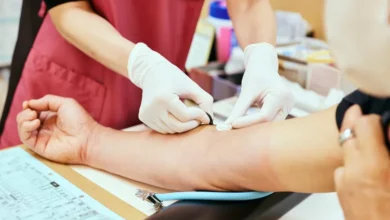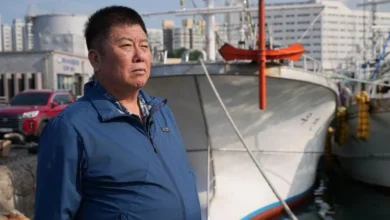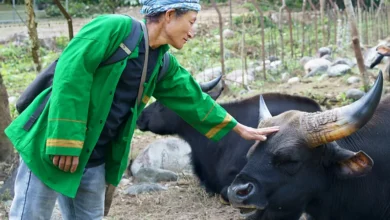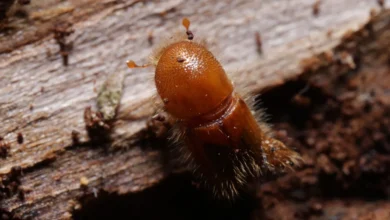Clock ticking on UK food-security action, NFU warns
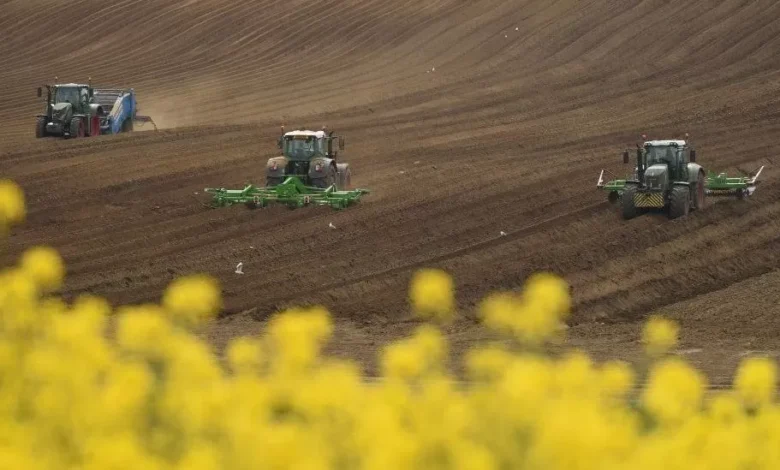
The “clock is ticking” for the government to protect homegrown food supply, the National Farmers’ Union president has warned.
Minette Batters said farmers were still being hit by labour shortages, high costs, the impacts of climate change and global political turmoil.
Her warning came at the first day of the NFU’s annual conference.
The government said it would spend more than £168m of public money on supporting farm productivity.
Mrs Batters said agricultural costs had risen by almost 50% since 2019 and the poultry industry – severely affected by the largest recorded outbreak of bird flu – had seen UK egg production fall to its lowest level in nine years.
The country must “never take our food security for granted,” she said.
“There are three cornerstones on which a prosperous farming sector must be built and which any government should use to underpin its farming policy,” Mrs Batters said. “They are boosting productivity, protecting the environment and managing volatility.
“But the clock is ticking. And it’s ticking for government – to start putting meaningful, tangible and effective meat on the bones of the commitments it has made.”
The NFU has previously warned many farms have cut production to limit losses from high inflation and energy bills, which could threaten domestic food security and supply.
‘Empty sheds’
NFU Cymru deputy president Abi Reader said that shoppers could be seeing less choice when it came to British food on the supermarket shelves.
“There are empty sheds out there that should be growing fruit and veg,” she said.
“There are empty sheds that should have poultry in them to produce eggs – and this food just isn’t coming through the system.
“We have got massive rising costs. A lot of this is due to the war in Ukraine, some of it is that we are still trying to settle down after Brexit – but these rising input costs are so high farmers just can’t afford them.
“Banks are worried about lending, so people have just contracted – businesses are producing less than they used to do.”
‘Rural vote’
Prime Minister Rishi Sunak addressed Tuesday’s conference in Birmingham on ‘Feeding a changing world’, in a pre-recorded message.
Farming minister Mark Spencer told delegates more than £168m in grants would be available for the development of new technology, as well as improved food production and animal welfare.
They will sit alongside the government’s Environmental Land Management Scheme (ELMS) payments, as part of a total annual package of £2.4bn in public funding.
He said: “We know that sustainable food production depends on a healthy environment, the two go hand in hand.
“Helping farms invest in new technology as well as bringing in nature-friendly schemes will support the future of farming.”
ELMS is a post-Brexit farm payment scheme designed to reward landowners and farmers in England for environmental work. It is designed to replace the European Union’s common agricultural policy subsidies.
Mr Spencer also told delegates that foreign seasonal farm workers should be paid a minimum of the national living wage – set to be £10.42 from 1 April – and guaranteed a minimum of 32 hours of work every week.
He said: “That’s the decent thing to do – and I think it is vital that we all stick to it.”
Meanwhile, Mrs Batters said “the rural vote will be crucial in the next election” and she would not “let the opposition off the hook either”.
Labour leader Sir Keir Starmer, who is also addressing the conference, has said Labour would protect British food standards and give farmers a better trading relationship with the EU.
The government said its trade deals would see UK farmers and food producers benefit from new opportunities to sell abroad, while animal welfare and food-safety standards would be maintained.
